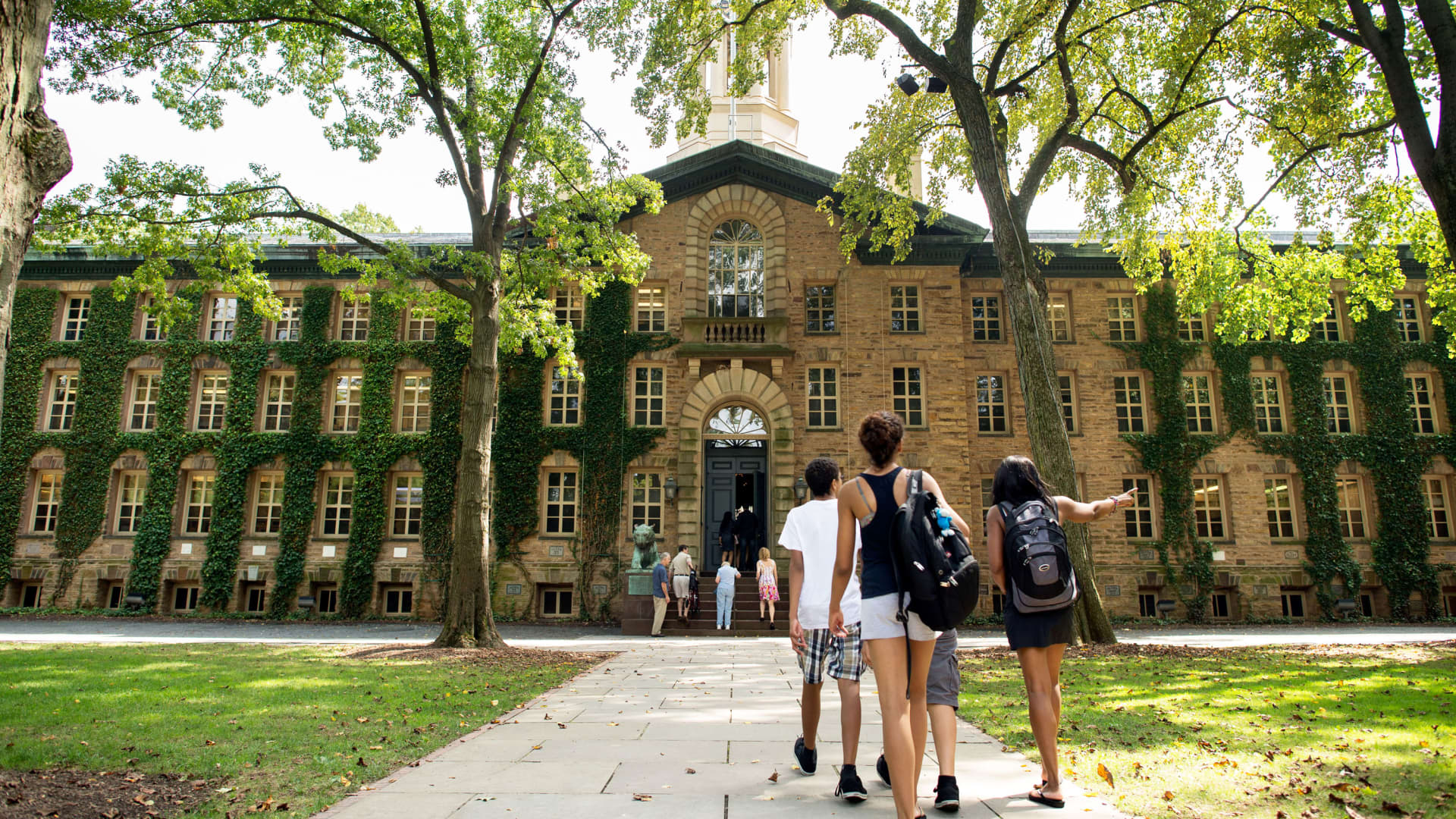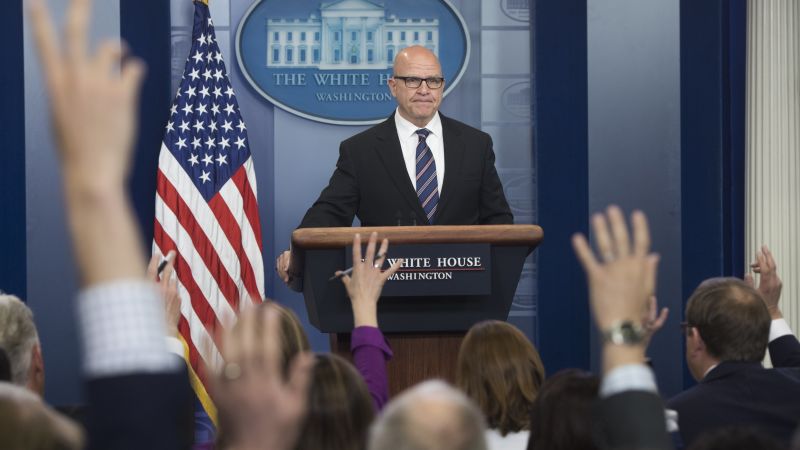Universities Face Financial Crisis: Impacts On Staff And Students

Table of Contents
Reduced Funding and Budget Cuts
The core of the problem lies in reduced funding and subsequent budget cuts. Years of underinvestment in higher education, coupled with increasing operational costs, have left many universities struggling to balance their budgets. This budgetary crisis has cascading effects, impacting both the quality of education and the well-being of university staff.
Impact on Educational Resources
Budgetary constraints are directly impacting the resources available to students. The quality of education is inevitably suffering due to the scarcity of essential learning materials and technological infrastructure.
- Fewer books and journals: Libraries, vital hubs of academic research, are forced to reduce their collections, limiting access to crucial research materials.
- Outdated lab equipment: Science and engineering departments are struggling to maintain and upgrade their equipment, hindering practical learning and research opportunities.
- Limited access to online learning platforms: Many universities are forced to restrict access to vital online resources and software due to licensing costs.
- Reduction in course offerings: Faculties are being pressured to reduce the number of courses offered, limiting student choices and specialization opportunities.
These cuts directly impact student learning and research opportunities, compromising the overall educational experience and potentially hindering future career prospects. Effective resource allocation within higher education funding is crucial to mitigating these negative effects.
Impact on Staff
The financial pressures are not limited to students; university staff are also bearing the brunt of these cuts. The consequences range from job losses to increased workloads and salary freezes, impacting morale and overall university performance.
- Faculty layoffs: Departments are facing difficult decisions, leading to the layoff of valued faculty members, reducing expertise and potentially impacting the quality of teaching.
- Increased teaching loads: Remaining faculty often face increased teaching loads, compromising the time they can dedicate to research, student mentoring, and professional development.
- Fewer administrative staff: Reductions in administrative staff can lead to longer wait times for students and faculty, hindering administrative efficiency.
- Potential program closures: Entire academic programs may be forced to close due to lack of funding, further impacting student choices and faculty employment.
Faculty cuts and staffing shortages within universities are a serious threat to the academic workforce and the future of higher education.
Rising Tuition Fees and Student Debt
Another significant consequence of the financial crisis is the escalating cost of higher education. Tuition fees are rising dramatically, leading to an affordability crisis and a significant increase in student debt.
The Increasing Cost of Higher Education
The cost of attending university is becoming increasingly prohibitive for many students.
- Increase in tuition fees year-on-year: Tuition fees are consistently rising faster than inflation, making higher education less accessible to low and middle-income families.
- Rising accommodation costs: The cost of student housing is escalating, adding a significant financial burden to students' already stretched budgets.
- Increased textbook prices: The high cost of textbooks and other educational materials places additional financial strain on students.
This escalating cost results in increased student loan debt, placing a significant burden on graduates for years after they leave university and limiting access to higher education for many low-income students. The affordability crisis in higher education needs immediate attention.
Impact on Student Support Services
The financial crisis has also led to reductions in crucial student support services, further exacerbating the challenges faced by students.
- Reduced counseling hours: Mental health services are often the first to be cut, leaving students with limited access to crucial support during stressful times.
- Fewer career advisors: Reductions in career services can limit students’ ability to effectively plan their careers and secure employment after graduation.
- Limited access to tutoring services: Cuts to tutoring and academic advising services can negatively impact academic performance and student success.
The reduction in student support negatively impacts student well-being, academic success, and career prospects, creating a ripple effect that extends far beyond the university setting.
Long-Term Consequences for Universities and Society
The financial pressures on universities have profound and far-reaching long-term consequences for both institutions and society as a whole.
The Future of Higher Education
The current financial crisis threatens the very fabric of higher education.
- Lower research funding: Reduced funding directly impacts research output, potentially hindering scientific advancements and innovation.
- Decline in faculty expertise: Faculty attrition due to layoffs and lack of competitive salaries can lead to a decline in faculty expertise and the overall quality of education.
- Decreased enrollment numbers: Rising tuition fees and a perceived decline in educational quality may lead to decreased enrollment numbers, putting further pressure on university finances.
- Potential closure of smaller institutions: Smaller universities and colleges may be forced to close their doors due to unsustainable financial pressures.
These factors collectively threaten the future of higher education, leading to a less skilled workforce and decreased social mobility.
Potential Solutions and Advocacy
Addressing the financial crisis requires a multi-pronged approach, including increased government funding and improved fundraising strategies.
- Increased government investment: Governments must recognize the vital role of universities in society and increase their investment in higher education.
- Philanthropic donations: Universities need to actively seek philanthropic donations and partnerships to supplement government funding.
- Tuition fee reform: Rethinking tuition fee structures and exploring alternative funding models can increase access to higher education and alleviate the student debt crisis.
- Cost-saving measures: Universities need to explore and implement cost-saving measures, ensuring efficiency and transparency in their financial management.
Advocacy for universities and the securing of higher education funding is crucial to ensure the long-term sustainability and quality of higher education. The time for action is now.
Conclusion
The financial crisis facing universities is having a devastating impact on both staff and students, threatening the quality of education and the future of higher learning. Reduced funding leads to cuts in educational resources and staff, while rising tuition fees and reduced support services place immense pressure on students. The long-term consequences are severe, potentially impacting research output, student enrollment, and the overall societal benefits derived from a well-educated workforce. Understanding the impacts of this crisis on staff and students is crucial in advocating for sustainable funding and ensuring the future of higher education. Learn more about the challenges and get involved in supporting our universities today. We must collectively work to address the university financial challenges and the higher education funding crisis to safeguard the future of learning.

Featured Posts
-
 800 000 Boost For Florida Space Coast Economic Development
May 18, 2025
800 000 Boost For Florida Space Coast Economic Development
May 18, 2025 -
 Smart Mlb Dfs Picks May 8th Sleepers And Hitter To Sit
May 18, 2025
Smart Mlb Dfs Picks May 8th Sleepers And Hitter To Sit
May 18, 2025 -
 Kanye West Super Bowl Snub And Taylor Swifts Potential Involvement
May 18, 2025
Kanye West Super Bowl Snub And Taylor Swifts Potential Involvement
May 18, 2025 -
 Delayed True Crime Series Overtakes High Rated Netflix Romance Drama
May 18, 2025
Delayed True Crime Series Overtakes High Rated Netflix Romance Drama
May 18, 2025 -
 The Dark Side Of Gambling Betting On The Devastation Of The Los Angeles Wildfires
May 18, 2025
The Dark Side Of Gambling Betting On The Devastation Of The Los Angeles Wildfires
May 18, 2025
Latest Posts
-
 The Trump Administration And Stephen Millers Possible Nsa Role
May 18, 2025
The Trump Administration And Stephen Millers Possible Nsa Role
May 18, 2025 -
 Is Stephen Miller The Right Choice For A National Security Position
May 18, 2025
Is Stephen Miller The Right Choice For A National Security Position
May 18, 2025 -
 Stephen Millers Potential Appointment As National Security Advisor
May 18, 2025
Stephen Millers Potential Appointment As National Security Advisor
May 18, 2025 -
 Get Ready Jersey Mikes Subs Is Coming To Galesburg
May 18, 2025
Get Ready Jersey Mikes Subs Is Coming To Galesburg
May 18, 2025 -
 Expect Jersey Mikes Subs In Galesburg Soon
May 18, 2025
Expect Jersey Mikes Subs In Galesburg Soon
May 18, 2025
